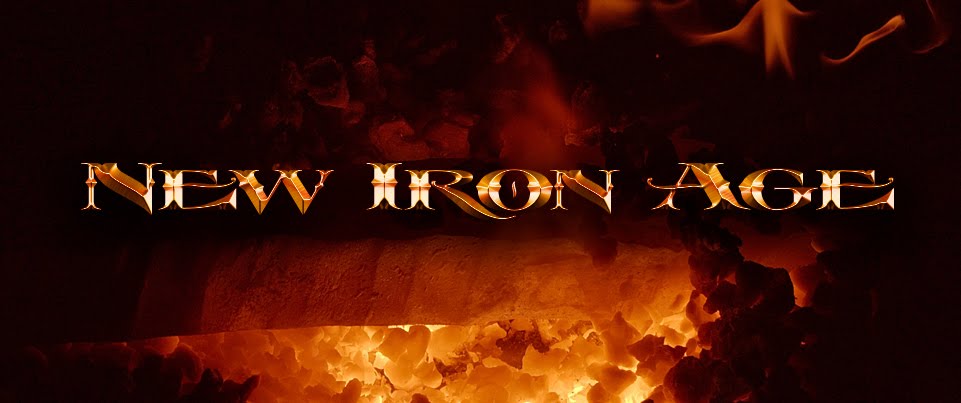Howard
wrote a lot of stories that never saw daylight in the course of his
tragically short life, and the history of his publications is full of
stories printed long after his death and with tangled editorial
histories. One of the best, and one with a complicated lineage, is
“The Black Stranger”, also known as “The Treasure of Tranicos”.
Howard
probably wrote the story in 1933 or 1934, and it is a toss-up whether
it started life as a pirate tale or a part of the Conan canon. At
the time Howard was regularly selling Conan stories to Weird
Tales, but he was also trying to branch out and get a foot in the
door with the better-paying adventure pulps. (They also paid on
time, something Weird Tales always struggled with.)
The
story originally existed in two versions, both with the same title of
“The Black Stranger”. One was a pirate adventure starring
Howard’s corsair hero “Black” Terence Vulmea, and one was
modified to be a Conan story. It’s not entirely clear which
version existed first, though since the Conan version is 5,000 words
longer, I tend to suspect it was the second one. He sent the Conan
version to Weird Tales and it was inexplicably rejected. Then
he cleaned up the pirate version a bit and retitled it “Swords of
the Red Brotherhood” and sent it to Otis Kline Associates to act as
agent for it.
We
don’t have many details past that. Otis Kline may have placed the
story with Golden Fleece – a historical adventure magazine –
but then they closed, and sent the manuscript back to Kline. By that
time Howard was dead, and all activity on publication came to a
standstill.
The
story didn’t see print at all until 1953, after being edited and
somewhat rewritten by the ubiquitous L Sprague de Camp. At the time,
a Conan story was far from a sure sell, and so he edited it rather
heavily to make it go down easier, and he changed the title to “The
Treasure of Tranicos” because he felt Howard used the word “black”
in his titles too much – a judgment that a cursory examination of
Howard’s bibliography will bear out, though I still think de Camp’s
new title is weak. Lester Del Rey didn’t like the new title either
and published the story as “The Black Stranger”. Later, de Camp
went back and did another edit with a much lighter hand, mostly just
tweaking the story to make it fit the overall continuity he and Lin
Carter were building for the character. That version was published
as The Treasure of Tranicos in book form by Ace, heavily
illustrated by Esteban Maroto.
I
have gone through both versions side by side, both the book version
and the Ballantine/Del Rey “original” version in their collection
The Conquering Sword of Conan from 2005. You can readily tell
where de Camp added stuff, as his great sin was overexplaining
everything, rendering his prose dense and lifeless. Howard could
evoke an entire nation and age with a few sketched, vivid sentences,
while de Camp belabored everything.
The
story itself is a cracking piece of storytelling, with a mad count in
self-imposed exile on a desolate coast, and a pair of cutthroat
pirates who turn up wanting a treasure rumored to be hidden somewhere
nearby, while murderous Picts lurk in the primeval forest.
Interestingly, it is the count’s daughter Belesa who serves as our
viewpoint character for these initial stages of the tale, and the
opening sections are a cascade of storms, battles, and relentless
double-crossing as everyone vies for whatever they are after,
everyone at cross-purposes on a field of shifting alliances and
circumstances.
Then
Conan shows up in the middle of it all, and it’s like throwing
rocket fuel on a campfire, as now we have an even more dangerous,
dynamic rogue in the mix, one who the pirates already know and
despise, though they also fear him. He also serves as the only male
character in the piece who is not a total piece of shit.
Added
to this is the supernatural element, revealed to be that the count is
in hiding because he made an enemy of a sorcerer who has summoned a
demon to hunt him down and kill him. In the end it all culminates in
an epic action sequence of the kind only Howard could do so well.
The Picts attack and a savage battle erupts around the fort, even as
the count is strangled by the demon and the manor house catches fire.
Conan has to rescue Belesa amidst scenes of slaughter and flame,
hacking his way through and battling a supernatural enemy.
The
second de Camp edit is still pretty good, and the book version with
the Maroto illustrations practically every other page is a feast for
the eyes. Few pen and ink illustrators have ever mastered pulp sword
& sorcery as well as Maroto. The ending is weak, with de Camp
having a bunch of Aquilonian malcontents show up in a ship to get
Conan so they can go off and have Conan the Liberator, but it
makes no sense for them to look for him where he is. The original
ending, with Conan taking command of a pirate ship and sailing away
to rejoin the Red Brotherhood, is far more effective.
Still,
despite its tangled history, this is an exciting and effective story,
and both the Conan and Vulmea versions are worth your time.
Fast-paced, tense adventure with buried treasure, betrayals, demons,
wizards, and an ending in fire and brutal violence. Sword &
Sorcery does not get much better.





